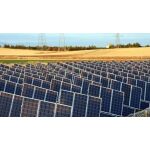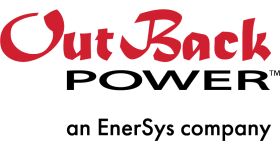What is net metering?
It is the netting of the energy fed into the grid from a generating station with the energy absorbed at the self-producer's consumption facility. The generating station can be installed in the same or adjacent area as the consumption facility.
Domestic pv systems
The photovoltaic system produces electricity that is consumed on site. Since the production (daytime sunshine) and consumption (24 hours a day) obviously do not coincide, you have the following possibilities:
- Send the excess energy to the grid and draw equivalent energy from the grid when you need it. This is called energy offsetting (or in market parlance, net-metering)
- To install a modern battery (not the classic lead-acid batteries, but lithium-ion batteries, similar to those in electric cars) together with the PV system, in which case the real-time self-consumption increases and, thus, you exchange less energy with the grid. This is net metering with storage for which there is currently a 'Photovoltaics on Roof' subsidy scheme running for residential systems up to 10.8kW. Information about the "Photovoltaics on the Roof" programme can be found on the relevant platform that has been created and where you submit your application (https://pvstegi.gov.gr/).
The "Photovoltaics on the Roof" programme subsidises households for the installation of photovoltaic systems with storage system (battery) and farmers for the installation of photovoltaic systems with or without storage system for self-consumption with the application of energy offsetting.
Natural persons (households) and farmers (professional farmers or farmers with special status) who, at the time of application to the Programme, have concluded a relevant Connection Contract for the photovoltaic station and the storage system (if any) with DEDDIE are entitled to participate in this Programme.
What do I gain with net-metering?
Every electricity bill, regardless of the provider, has two distinct parts (and one relating to council tax and EPT, but these are not related to electricity). The first leg ("competitive charges") relates to the cost of energy, i.e. each kilowatt-hour, and varies from provider to provider. The second part concerns the so-called 'regulated charges' (e.g. network usage charges, utility charges, utility services, ETMEAR, etc.) and is the same for all suppliers.
With net-metering, you earn 100% of the competitive charges for every kilowatt-hour you generate with your PV. You also earn a percentage of regulated charges. What percentage? It depends on how much the production from the PV coincides with your consumption (the so-called "timing rate").
Business
Law 5037/2023 establishes a new institutional framework for self-consumption of energy for businesses.
In short:
-Restriction of energy offsetting (net-metering) for businesses
-Promoting real-time self-generation by selling surplus energy (net-billing), expanding the power limits and providing the possibility of virtual net-billing.Net billing is real-time self-generation by selling surplus energy.Net billing is real-time self-generation by selling surplus energy. The BPA is currently accepting applications for this programme, however, due to the fact that the ministerial decision defining the framework of the programme has not yet been issued, the process cannot be completed.
Sales price in net billing
For photovoltaic plants up to 1 MWp: This is the sales price currently in force (and until August 2024) for the corresponding photovoltaic parks that sell all the energy produced, i.e. €65.74/MWh.
For photovoltaic systems with a capacity of more than 1 MWp: They can participate in competitive bidding procedures or directly in the electricity markets through a Pooling Agent (APA) or enter into bilateral agreements (PPAs).
However, if a PV plant injects less than 1,500MWh per year into the grid as excess, then it is not required to participate in a tender. That is, even if the PV has a capacity of 2 MWp but the excess energy injected for sale annually is less than 1,500 MWh, it can get the tariff of €65.74/MWh.











